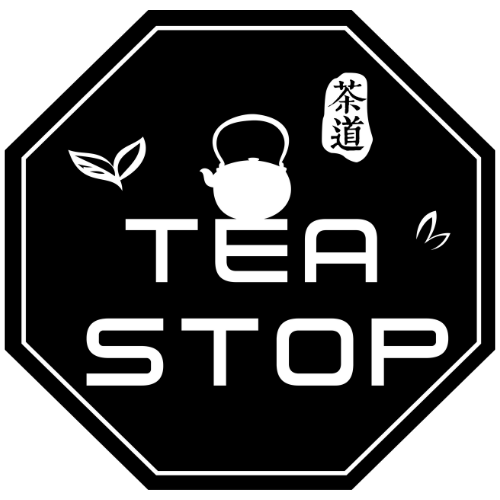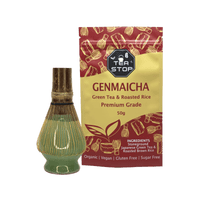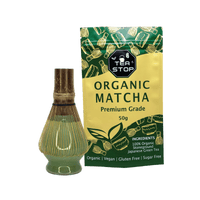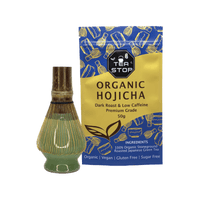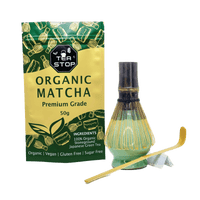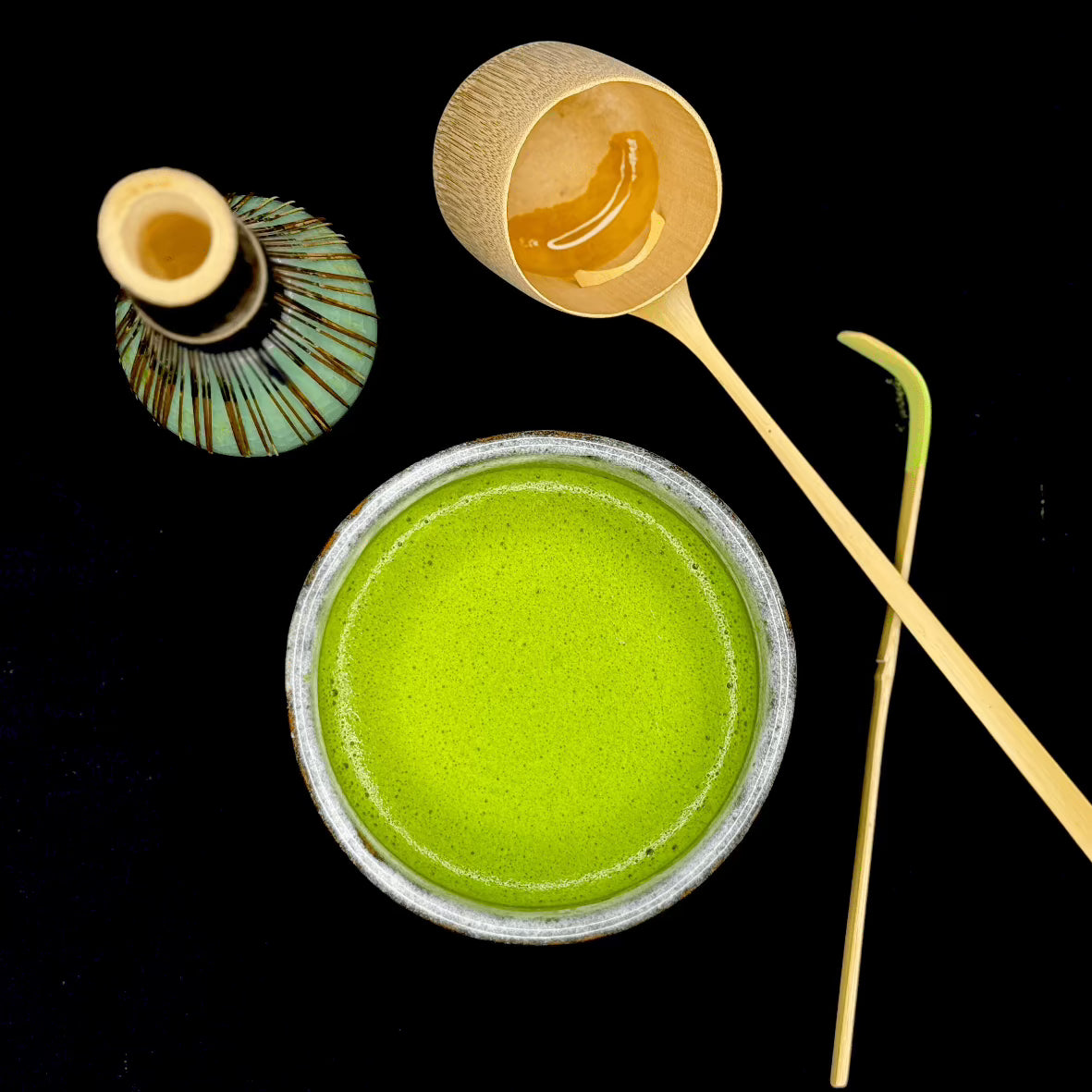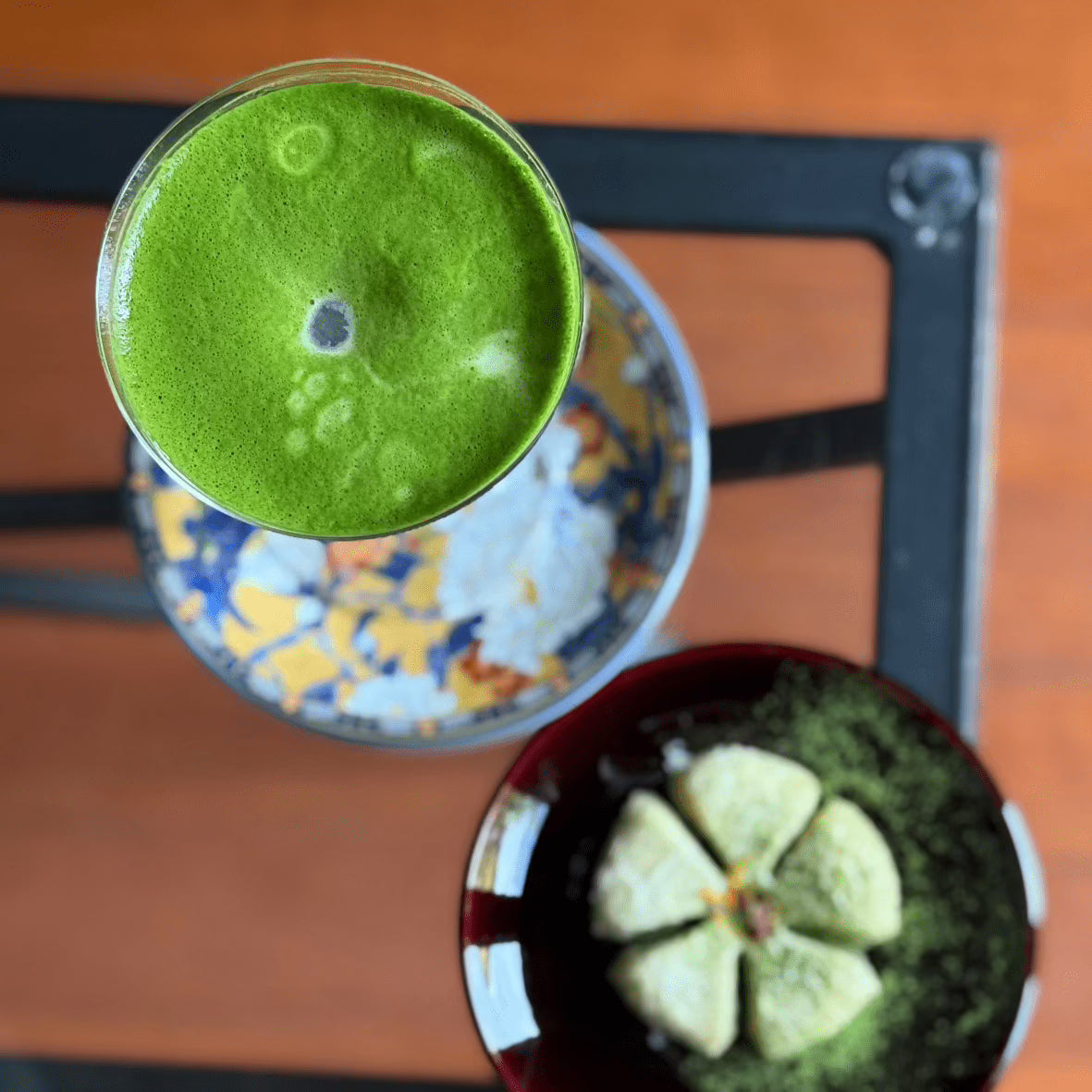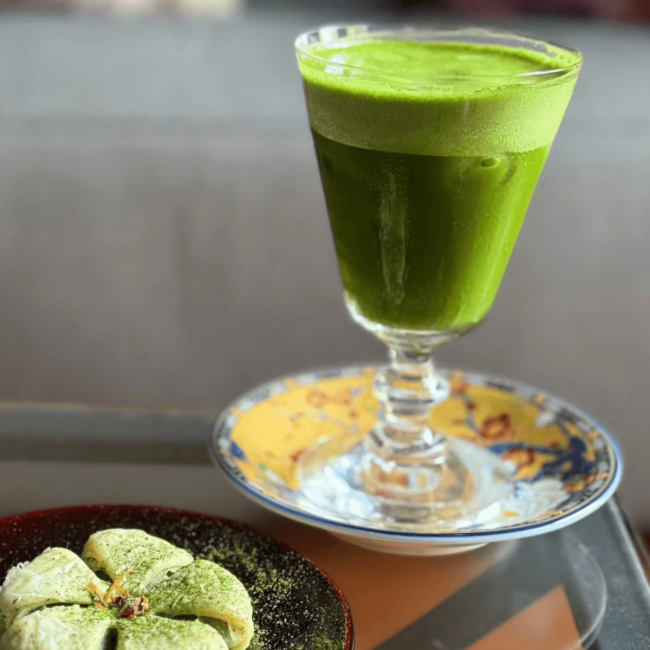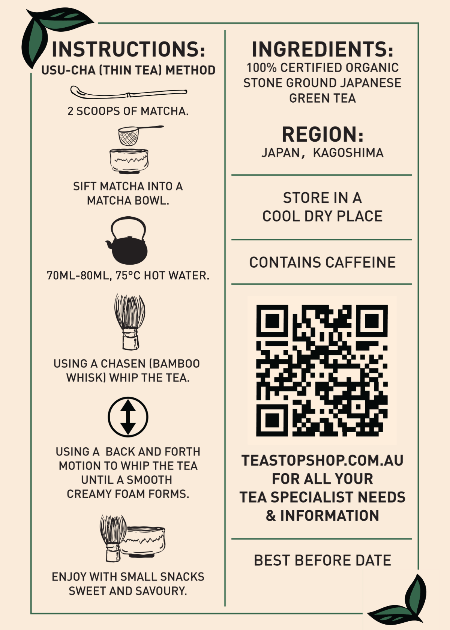
Rooibos Tea Side Effects: What You Need to Know
Share
Rooibos tea has captured the hearts of tea lovers worldwide, especially in Australia, thanks to its naturally sweet, earthy flavour and vibrant ruby-red hue. This South African herbal infusion has become a favourite caffeine-free alternative to traditional teas, offering relaxation without the jitters or sleep disruption.
Many people enjoy rooibos for its calming nature and wellness reputation. It’s rich in antioxidants that support overall health and vitality. However, like any botanical enjoyed regularly, it’s important to understand both the rooibos tea benefits and potential rooibos tea side effects. Mindful consumption ensures you enjoy every sip safely and responsibly.
What is Rooibos Tea?
Rooibos tea originates from the Cederberg region of South Africa, where the indigenous Khoisan people first harvested the needle-like leaves of the Aspalathus linearis shrub. This unique plant thrives exclusively in the mountainous terrain of the Western Cape, making authentic rooibos a distinctly South African treasure.
The tea comes in two primary forms: red and green rooibos. Red rooibos undergoes a fermentation process that develops its characteristic amber colour and naturally sweet, earthy flavour. Green rooibos skips fermentation, preserving a lighter, more grassy taste while retaining higher levels of certain antioxidants.
Nutritional Profile:
- Rich in polyphenols like aspalathin and nothofagin
- Contains minerals including iron, calcium, potassium, and magnesium
- Naturally caffeine-free
- Low tannin content (significantly less than black or green tea)
- Zero calories when consumed plain
Balancing Rooibos Tea Benefits and Side Effects
Rooibos tea benefits have attracted attention across the globe. Research suggests it may support cardiovascular wellness, lower inflammation, and help manage blood sugar levels. Thanks to its powerful rooibos tea antioxidants, it may even offer protection against oxidative stress and cellular damage.
However, while these findings are promising, many come from small-scale or animal studies. Human trials are still limited. The evidence supports rooibos as a nutritious beverage, but not a miracle cure. Understanding both the potential benefits and side effects creates a balanced, informed view of this beloved tea.
Common Side Effects of Rooibos Tea
While rooibos tea is celebrated as a gentle, caffeine-free alternative to traditional teas, understanding its potential side effects remains essential for informed consumption.

Liver Toxicity Concerns
Rare cases of liver toxicity have been documented, particularly among individuals with pre-existing liver conditions. These isolated reports suggest that certain compounds in rooibos may affect liver enzyme levels, though such reactions appear uncommon in healthy individuals. Anyone with a history of liver disease should approach rooibos consumption with caution and medical guidance.
Unexpected Heart Palpitations
Despite containing no caffeine, some individuals have reported experiencing heart palpitations after drinking rooibos tea. The mechanism behind this reaction remains unclear, though it may relate to individual sensitivities rather than the tea itself.
Interestingly, research on rooibos tea and heart health shows that for most people, the tea may actually support cardiovascular wellness by helping regulate blood pressure and improving circulation. However, because everyone’s body reacts differently, it’s best to monitor your response, especially if you experience any unusual heartbeat sensations and consult a healthcare provider if symptoms persist.
The Tannin Advantage
Rooibos naturally contains minimal tannin levels compared to black or green tea. This characteristic means drinkers typically avoid the stomach upset, nausea, or iron absorption interference often associated with high-tannin beverages. The low tannin profile makes rooibos gentler on the digestive system for most people.
1. ACE Inhibitors
ACE inhibitors, commonly prescribed for high blood pressure and heart conditions, may become less effective when combined with rooibos. The tea's compounds can potentially alter how these medications work in your cardiovascular system.
2. Blood Sugar Medications
Blood sugar medications require particular attention. Rooibos may influence glucose metabolism, which could amplify or diminish the effects of diabetes drugs. This creates a risk of unpredictable blood sugar fluctuations that can be dangerous for those managing diabetes.
3. Cholesterol Medications
Cholesterol medications, particularly atorvastatin (Lipitor), have shown interaction potential with rooibos compounds. The tea may affect how your liver metabolises these drugs, altering their concentration in your bloodstream.
4. Blood Pressure Medications
Blood pressure medications beyond ACE inhibitors also warrant caution. The bioactive compounds in rooibos can influence cardiovascular function in ways that may conflict with prescribed treatments.
If you take any prescription medications regularly, speaking with your healthcare provider before incorporating rooibos into your daily routine becomes essential. Your doctor can assess your specific medication regimen and determine whether rooibos poses any risks to your treatment plan.
Hormonal Considerations and Phytoestrogens in Rooibos
Rooibos tea contains trace amounts of rooibos phytoestrogens—plant compounds that can mimic estrogen activity in the body. While these levels are considerably lower than those found in soy or flaxseed, their presence warrants attention for specific groups of people.
Individuals with hormone-sensitive conditions may need to exercise caution. These conditions include:
- Breast, ovarian, or uterine cancer
- Endometriosis
- Uterine fibroids
- Polycystic ovary syndrome (PCOS)
The potential endocrine effects of rooibos remain under-researched, leaving questions about how regular consumption might influence hormonal balance. Some healthcare practitioners suggest that the minimal phytoestrogen content poses negligible risk for most people, yet those managing hormone-dependent cancers or undergoing hormone therapy should approach rooibos with informed awareness.
If you have a history of hormone-related health issues, discussing rooibos consumption with your oncologist or endocrinologist becomes essential. They can evaluate whether the tea fits safely within your treatment plan and dietary considerations, ensuring that your beverage choices support rather than complicate your health journey.
Safety During Pregnancy and Breastfeeding
Many expectant mothers choose rooibos as a soothing, caffeine-free option, but research on rooibos tea and pregnancy is limited. While it lacks caffeine and harmful additives, experts advise moderation until more data is available.
Since trace compounds can pass into breast milk, consult your obstetrician or midwife to ensure safety for you and your baby.
Key points for pregnant and nursing mothers:
- No long-term studies on rooibos exposure in babies
- Minimal phytoestrogen content raises hormonal concerns during development
- Individual health factors may affect risks
Medical professionals recommend discussing herbal tea use with your healthcare provider for personalised guidance based on your health and pregnancy history.
To minimise risks:
- Choose certified organic rooibos from trusted South African or Australian brands.
- Look for third-party testing for purity.
- Buy tea packaged in airtight containers to prevent moisture and mould.
High-quality rooibos not only enhances flavour but also ensures you receive all its antioxidant benefits safely.
Rooibos Tea Benefits for Sleep and Skin
Beyond health and heart benefits, rooibos is popular for relaxation and skincare. Many people use rooibos tea for sleep thanks to its natural calming effect and lack of caffeine. Its antioxidants and minerals also support rooibos tea for skin health, soothing irritation and promoting a youthful glow.
You can enjoy it warm before bed or even apply cooled rooibos tea to the skin for a gentle, natural toner.
Summary and Recommendations for Safe Consumption
Rooibos tea offers a gentle, caffeine-free way to enjoy antioxidants and warmth in your daily routine. While Rooibos Tea Side Effects remain uncommon, awareness helps you make informed choices about your wellness practice.

Safe rooibos consumption tips include:
- Start with one cup daily to observe how your body responds
- Choose certified organic rooibos from trusted suppliers to avoid contamination
- Inform your healthcare provider if you're taking medications for blood pressure, cholesterol, or blood sugar
- Exercise caution if you have pre-existing liver conditions or hormone-sensitive health concerns
- Seek medical guidance during pregnancy or breastfeeding
Managing side effects rooibos tea becomes simpler when you listen to your body and maintain open communication with healthcare professionals. This mindful approach allows you to appreciate rooibos as a flavorful ritual while honouring your unique health needs. The tea's naturally sweet, earthy character makes it a beautiful addition to moments of calm and reflection.
FAQs (Frequently Asked Questions)
What is Rooibos tea and where does it originate from?
Rooibos tea is a caffeine-free herbal tea that originates from the Cederberg region of South Africa. It is known for its rich polyphenol content, including aspalathin and nothofagin, which contribute to its health benefits.
What are the common side effects of Rooibos tea?
While Rooibos tea is generally considered gentle and safe for most people, some common side effects can include rare cases of liver toxicity and unexpected heart palpitations. These effects are uncommon but should be monitored, especially if consumed in large amounts.
Can Rooibos tea interact with medications?
Yes, Rooibos tea can influence how your body processes certain medications. Notably, it may interact with ACE inhibitors used for high blood pressure, blood sugar medications, cholesterol medications like atorvastatin (Lipitor), and other blood pressure drugs. It's important to consult your healthcare provider before combining Rooibos tea with these medications.
Is Rooibos tea safe during pregnancy and breastfeeding?
Many expectant mothers choose Rooibos tea as a soothing, caffeine-free beverage during pregnancy and breastfeeding. However, due to its trace amounts of phytoestrogens, it's advisable to consult a healthcare professional to ensure safety based on individual health conditions.
Are there any quality concerns or contamination risks with Rooibos tea?
Quality and safety of Rooibos tea can vary depending on the source. In regions like Australia and elsewhere, it's important to choose high-quality Rooibos tea from reputable suppliers to minimise risks of contamination and ensure maximum health benefits.
